
This interdisciplinarily collection investigates women in diverse locales—ranging from Quebec to Beirut. The contributors consider such subjects as Yucatan feminism, Islamic fundamentalisms, Canadian gender formations, historic Chicana/o struggles, and Israeli/Palestinian conflicts. Divided into three parts, the collection first examines constructions of nationalism and communities whose practices complicate these constructions. The second section discusses regulations of particular nation-states and how they affect the lives of women, while the third presents studies of transnational identity formation, in which contributors critique ideas such as “multicultural nationalism” and “global feminism.” Arguing provocatively that such movements and concepts inadequately represent women’s interests, contributors examine how such beliefs and their attendant organizations may actually bolster the very formations they ought to subvert.
In its demonstration of the critical possibilities of feminist alliances across discrepant and distinct material conditions, Between Woman and Nation will make a unique contribution to women’s studies, feminist theory, studies of globalization and transnationalism, ethnic studies, and cultural studies.


Spanning the globe and the centuries, Frances Karttunen tells the stories of sixteen men and women who served as interpreters and guides to conquerors, missionaries, explorers, soldiers, and anthropologists. These interpreters acted as uncomfortable bridges between two worlds; their own marginality, the fact that they belonged to neither world,underscores the complexity and tension between cultures meeting for the first time. The interpreters include:
o Do–a Marina (La Malinche), who interpreted for Cortes in the conquest of Mexico
o Sacajawea, who accompanied Lewis and Clark on their expedition
o Sarah Winnemucca, a U.S. army scout and Washington lobbyist for the Northern Paiutes
o Gaspar Antonio Chi, Maya Interpreter General for Yucatan
o Guaman Poma de Ayala, eyewitness reporter of the destruction of Inca culture
o Charles Eastman, a Sioux physician at Wounded Knee
o Larin Paraske, an informant for Finnish ethnographers
o Do–a Luz Jimenez, Diego Rivera’s model and a native informant to anthropologists
o Mar’a Sabina, the Mazatec mushroom shaman who became a celebrity in the drug culture of the 1960s
o Ishi, the last surviving Yahi Indian.
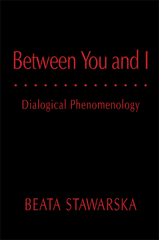
Classical phenomenology has suffered from an individualist bias and a neglect of the communicative structure of experience, especially the phenomenological importance of the addressee, the inseparability of I and You, and the nature of the alternation between them. Beata Stawarska remedies this neglect by bringing relevant contributions from cognate empirical disciplines—such as sociolinguistics and developmental psychology, as well as the dialogic tradition in philosophy—to bear on phenomenological inquiry. Taken together, these contributions substantiate an alternative view of primary I-You connectedness and help foreground the dialogic dimension of both prediscursive and discursive experience. Between You and I suggests that phenomenology is best practiced in a dialogical engagement with other disciplines.
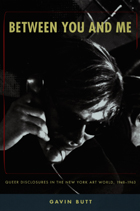
Focusing on the period from 1948 to 1963, Butt draws on the accusations and denials of homosexuality that appeared in the popular press, on early homophile publications such as One and the Mattachine Review, and on biographies, autobiographies, and interviews. In a stunning exposition of Larry Rivers’s work, he shows how Rivers incorporated gossip into his paintings, just as his friend and lover Frank O’Hara worked it into his poetry. He describes how the stories about Andy Warhol being too “swish” to be taken seriously as an artist changed following his breakthrough success, reconstructing him as an asexual dandy. Butt also speculates on the meanings surrounding a MoMA curator’s refusal in 1958 to buy Jasper Johns’s Target with Plaster Casts on the grounds that it was too scandalous for the museum to acquire. Between You and Me sheds new light on a pivotal moment in American cultural production as it signals new directions for art history.

The early letters were written before Niedecker's marriage and at a time when the poet had "more trees for friends than people." In these letters from Black Hawk Island, Niedecker sought a community of fellow poets. The following period, the Milwaukee years, form the bulk of the collection and saw the establishment of Niedecker's identity as a poet. From the city of "point-top towers," she wrote Corman frequently about poetry, other poets, current events, and daily life. After her return in 1969 to Black Hawk Island, relieved of earlier anxieties over publication, she was confidently at work on her sequences, her most serious poetic undertaking.

The creation of the National Health Service was the most significant of the many reforms of the post-war Labour government in the UK. The man responsible was Aneurin “Nye” Bevan. The son of a Welsh miner, he became a local trade union leader at only nineteen. In 1929, he was elected as a Labour MP. Bevan believed the war was Britain’s opportunity to create a new society, a position he maintained throughout the conflict. When the war ended in 1945, the landslide Labour victory gave him the chance to make this vision a reality. Known for his impassioned oratory, Bevan’s fundamental belief that the new NHS should be freely available to all was ultimately at odds with a government struggling to balance the books. He resigned in 1951 over the introduction of charges for prescriptions and glasses. With the NHS requiring an ever-increasing share of national income, this updated edition considers Bevan’s legacy as the future of the health service he created is fought over as never before.
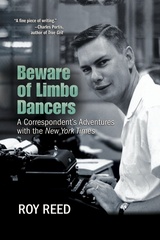
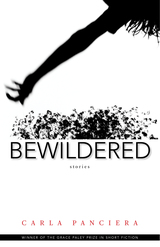
Familiar landscapes—city streets, coastal towns emptied of tourists, suburban neighborhoods—are backdrops for unfulfilled dreams: the luckiest man alive arouses the suspicions of those he most wants to befriend, a grieving lover invites herself into another's life, a young girl discovers her tea leaves reveal nothing as life-altering as those of her friend, the straying husband pays a debt for his and his son's obsessions.
The stories ask: Can you live any way forever? What links them is what links all of us: the desire to belong, the need to heal, the fear of what happens next.
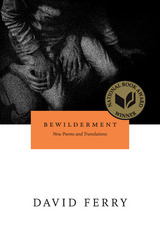
Winner of the 2012 National Book Award for Poetry.
To read David Ferry’s Bewilderment is to be reminded that poetry of the highest order can be made by the subtlest of means. The passionate nature and originality of Ferry’s prosodic daring works astonishing transformations that take your breath away. In poem after poem, his diction modulates beautifully between plainspoken high eloquence and colloquial vigor, making his distinctive speech one of the most interesting and ravishing achievements of the past half century. Ferry has fully realized both the potential for vocal expressiveness in his phrasing and the way his phrasing plays against—and with—his genius for metrical variation. His vocal phrasing thus becomes an amazingly flexible instrument of psychological and spiritual inquiry. Most poets write inside a very narrow range of experience and feeling, whether in free or metered verse. But Ferry’s use of meter tends to enhance the colloquial nature of his writing, while giving him access to an immense variety of feeling. Sometimes that feeling is so powerful it’s like witnessing a volcanologist taking measurements in the midst of an eruption.
From Bewilderment:
October
The day was hot, and entirely breathless, so
The remarkably quiet remarkably steady leaf fall
Seemed as if it had no cause at all.
The ticking sound of falling leaves was like
The ticking sound of gentle rainfall as
They gently fell on leaves already fallen,
Or as, when as they passed them in their falling,
Now and again it happened that one of them touched
One or another leaf as yet not falling,
Still clinging to the idea of being summer:
As if the leaves that were falling, but not the day,
Had read, and understood, the calendar.
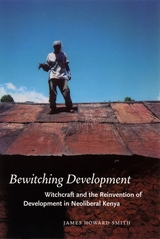
Similar to magic, development’s promise of a better world elicits both hope and suspicion from Wataita. Smith shows that the unforeseen changes wrought by development—greater wealth for some, dashed hopes for many more—foster moral debates that Taita people express in occult terms. By carefully chronicling the beliefs and actions of this diverse community—from frustrated youths to nostalgic seniors, duplicitous preachers to thought-provoking witch doctors—BewitchingDevelopment vividly depicts the social life of formerly foreign ideas and practices in postcolonial Africa.

José Deustua argues that developing countries must be understood in terms of achieving domestic development as well as in their role in generating foreign exchange and in linking themselves to the world economy. Focusing on various sectors of Peru’s mining production, the mines, owners and mine workers, the transportation networks and the use of muleteers, this study is also concerned with market-building and domestic development in nineteenth-century Latin America.
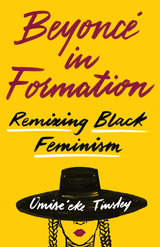
Making headlines when it was launched in 2015, Omise’eke Tinsley’s undergraduate course “Beyoncé Feminism, Rihanna Womanism” has inspired students from all walks of life. In Beyoncé in Formation, Tinsley now takes her rich observations beyond the classroom, using the blockbuster album and video Lemonade as a soundtrack for vital new-millennium narratives.
Woven with candid observations about her life as a feminist scholar of African studies and a cisgender femme married to a trans spouse, Tinsley’s “Femme-onade” mixtape explores myriad facets of black women’s sexuality and gender. Turning to Beyoncé’s “Don’t Hurt Yourself,” Tinsley assesses black feminist critiques of marriage and then considers the models of motherhood offered in “Daddy Lessons,” interspersing these passages with memories from Tinsley’s multiracial family history. Her chapters on nontraditional bonds culminate in a discussion of contemporary LGBT politics through the lens of the internet-breaking video “Formation,” underscoring why Beyoncé’s black femme-inism isn’t only for ciswomen. From pleasure politics and the struggle for black women’s reproductive justice to the subtext of blues and country music traditions, the landscape in this tour is populated by activists and artists (including Loretta Lynn) and infused with vibrant interpretations of Queen Bey’s provocative, peerless imagery and lyrics.
In the tradition of Roxanne Gay’s Bad Feminist and Jill Lepore’s best-selling cultural histories, Beyoncé in Formation is the work of a daring intellectual who is poised to spark a new conversation about freedom and identity in America.
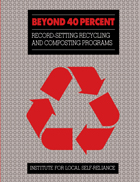
Beyond 40% is a practical guide for communities trying to solve their solid waste disposal problems.

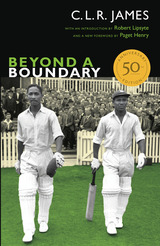
Named one of the Top 50 Sports Books of All Time by Sports Illustrated
"Beyond a Boundary . . . should find its place on the team with Izaak Walton, Ivan Turgenev, A. J. Liebling, and Ernest Hemingway."—Derek Walcott, The New York Times Book Review
"As a player, James the writer was able to see in cricket a metaphor for art and politics, the collective experience providing a focus for group effort and individual performance. . . . [In] his scintillating memoir of his life in cricket, Beyond a Boundary (1963), James devoted some of his finest pages to this theme."—Edward Said, The Washington Post
"A work of double reverence—for the resilient, elegant ritualism of cricket and for the black people of the world."—Whitney Balliett, The New Yorker
"Beyond a Boundary is a book of remarkable richness and force, which vastly expands our understanding of sports as an element of popular culture in the Western and colonial world."—Mark Naison, The Nation
"Everything James has done has had the mark of originality, of his own flexible, sensitive, and deeply cultured intelligence. He conveys not a rigid doctrine but a delight and curiosity in all the manifestations of life, and the clue to everything lies in his proper appreciation of the game of cricket."—E. P. Thompson, author of The Making of the English Working Class
"Beyond a Boundary is . . . first and foremost an autobiography of a living legend—probably the greatest social theorist of our times."—Manning Marable, Journal of Sport & Social Issues
"The great triumph of Beyond a Boundary is its ability to rise above genre and in its very form explore the complex nature of colonial West Indian society."—Caryl Phillips, The New Republic

In Beyond a Western Bioethics, physicians Angeles Tan Alora and Josephine M. Lumitao join eight other contributors to provide a comprehensive exploration of bioethical issues outside of the dominant American and western European model. Using the Philippines as a case study, they address how a developing country's economy, religion, and culture affect the bioethical landscape for doctors, patients, families, and the society as a whole.
American principles of medical ethics assume the primacy of individual autonomy, the importance of truth-telling, and secular standards of justice and morality. In the Philippines, these standards are often at odds with a culture in which family relationships take precedence over individualism, and ideas of community, friendship, and religion can deeply influence personal behavior. Pervasive poverty further complicates the equation. Contributors move from a general discussion of the moral vision informing health care decisions in the Philippines to an exploration of a wide range of specific cases: family planning, care of the elderly, organ transplants, death and dying, medical research, AIDS care, doctor-patient relationships, informed consent, and the allocation of scarce health-care resources.
Written for both students and professionals, the book provides a much-needed perspective on how medical ethics are practiced in a developing nation, and it successfully challenges the wisdom of global bioethical standards that do not account for local cultural and economic differences.

For most Americans today, Roe v. Wade concerns just one thing: the right to choose abortion. But the Supreme Court’s decision once meant much more. The justices ruled that the right to privacy encompassed the abortion decision. Grassroots activists and politicians used Roe—and popular interpretations of it—as raw material in answering much larger questions: Is there a right to privacy? For whom, and what is protected?
As Mary Ziegler demonstrates, Roe’s privacy rationale attracted a wide range of citizens demanding social changes unrelated to abortion. Movements questioning hierarchies based on sexual orientation, profession, class, gender, race, and disability drew on Roe to argue for an autonomy that would give a voice to the vulnerable. So did advocates seeking expanded patient rights and liberalized euthanasia laws. Right-leaning groups also invoked Roe’s right to choose, but with a different agenda: to attack government involvement in consumer protection, social welfare, racial justice, and other aspects of American life.
In the 1980s, seeking to unify a fragile coalition, the Republican Party popularized the idea that Roe was a symbol of judicial tyranny, discouraging anyone from relying on the decision to frame their demands. But Beyond Abortion illuminates the untapped potential of arguments that still resonate today. By recovering the diversity of responses to Roe, and the legal and cultural battles it energized, Ziegler challenges readers to come to terms with the uncomfortable fact that privacy belongs to no party or cause.
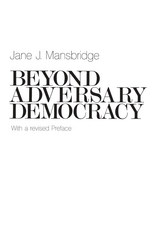
"Sociologists recurrently complain about how seldom it is that we produce books that combine serious theorizing about important issues of public policy with original and sensitive field research. Several rounds of enthusiastic applause, then, are due Jane Mansbridge . . . for having produced a dense and well written book whose subject is nothing less ambitious than the theory of democracy and its problems of equality, solidarity, and consensus. Beyond Adversary Democracy, however, is not simply a work of political theory; Mansbridge explores her abstract subject matter by close studies (using ethnographic, documentary, and questionnaire methods) of two small actual democracies operating at their most elemental American levels (1) a New England town meeting ("Selby," Vermont) and (2) an urban crisis center ("Helpline"), whose 41 employees shared a New Left-Counterculture belief in participatory democracy and consensual decision-making. [Mansbridge] is a force to contend with. It is in our common interest that she be widely read."—Bennett M. Berger, Contemporary Sociology
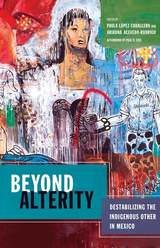
Although previous studies have usually focused on the most visible aspects of differences—cosmovision, language, customs, resistance—the contributors to this volume show that emphasizing difference prevents researchers from seeing all the social phenomena where alterity is not obvious. Those phenomena are equally or even more constitutive of social life and include property relations (especially individual or private ones), participation in national projects, and the use of national languages.
The category of “indigenous” has commonly been used as if it were an objective term referring to an already given social subject. Beyond Alterity shows how this usage overlooks the fact that the social markers of differentiation (language, race or ethnic group, phenotype) are historical and therefore unstable. In opposition to any reification of geographical, cultural, or social boundaries, this volume shows that people who (self-)identify as indigenous share a multitude of practices with the rest of society and that the association between indigenous identification and alterity is the product of a specific political history.
Beyond Alterity is essential reading for anyone interested in understanding indigenous identity, race, and Mexican history and politics.
Contributors
Ariadna Acevedo-Rodrigo
Laura Cházaro
Michael T. Ducey
Paul K. Eiss
José Luis Escalona-Victoria
Vivette García Deister
Peter Guardino
Emilio Kourí
Paula López Caballero
Elsie Rockwell
Diana Lynn Schwartz
Gabriela Torres-Mazuera
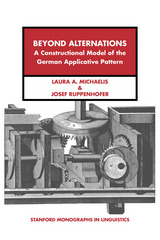
of corpora, the authors propose that this pattern is inherently meaningful and that its meaning provides the basis for creative extensions.

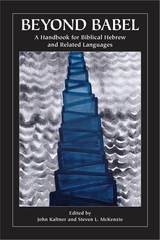
Beyond Babel provides a general introduction to and overview of the languages that are significant for the study of the Hebrew Bible and ancient Israel. Included are essays on biblical and inscriptional Hebrew, Akkadian, Northwest Semitic dialects (Ammonite, Edomite, and Moabite), Arabic, Aramaic, Egyptian, Hittite, Phoenician, postbiblical Hebrew, and Ugaritic.
Each chapter in the volume shares a common format, including an overview of the language, a discussion of its significance for the Hebrew Bible, and a list of ancient sources and modern resources for further study of the language. A general introduction by John Huehnergard discusses the importance of the study of Near Eastern languages for biblical scholarship, helping to make the volume an ideal resource for persons beginning an in-depth study of the Hebrew Bible.

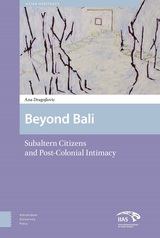

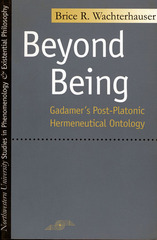
In Beyond Being, Brice R. Wachterhauser contends that this perceived bifurcation in Gadamer's work oversimplifies and distorts important parts of Gadamer's thought. Wachterhauser argues that only by viewing Gadamer's contribution to philosophy as an integrated whole and by reading Gadamer's hermeneutical studies in light of his Plato studies are we able to avoid certain key misunderstandings of Gadamer, as well as to comprehend more clearly the radical implications of Gadamer's thought.
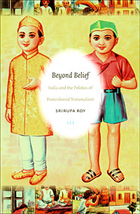
Roy considers several different ways that identification with the Indian nation-state was produced and consolidated during the 1950s and 1960s. She looks at how the Films Division of India, a state-owned documentary and newsreel production agency, allowed national audiences to “see the state”; how the “unity in diversity” formation of nationhood was reinforced in commemorations of India’s annual Republic Day; and how the government produced a policy discourse claiming that scientific development was the ultimate national need and the most pressing priority for the state to address. She also analyzes the fate of the steel towns—industrial townships built to house the workers of nationalized steel plants—which were upheld as the exemplary national spaces of the new India. By prioritizing the role of actual manifestations of and encounters with the state, Roy moves beyond theories of nationalism and state formation based on collective belief.

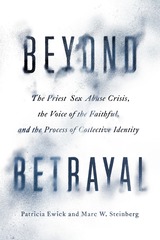
Beyond Betrayal charts a nationwide identity shift through the story of one chapter of Voice of the Faithful (VOTF), an organization founded in the scandal’s aftermath. VOTF had three goals: helping survivors of abuse; supporting priests who were either innocent or took risky public stands against the wrongdoers; and pursuing a broad set of structural changes in the church. Patricia Ewick and Marc W. Steinberg follow two years in the life of one of the longest-lived and most active chapters of VOTF, whose thwarted early efforts at ecclesiastical reform led them to realize that before they could change the Catholic Church, they had to change themselves. The shaping of their collective identity is at the heart of Beyond Betrayal, an ethnographic portrait of how one group reimagined their place within an institutional order and forged new ideas of faith in the wake of widespread distrust.

The teacher's role is utterly unique. Assigned at random to a group of children who think, learn, and interrelate in complex, subtle, and individual ways, he or she is expected to transmit specific educational material uniformly in a set amount of time. Appropriately, this book on classroom dynamics is also unique. By applying eclectic methodological strategies to the study of teacher–student interactions, it gets beyond the biases that underlie more traditional analyses of classroom life.
Carew and Lightfoot devise and implement diverse methods for describing, recording, and interpreting classroom processes, and then synthesize their findings for each of the four classrooms studied. Fascinating stories emerge of how the four teachers, each with limited resources of time, space, energy, and emotion, distribute their attention among their students. Over time, patterns develop. Some are patterns of positive discrimination, in which the teachers recognize and respond to individual children's needs; and others are patterns of negative discrimination, in which the teachers reveal particular biases on such grounds as race and sex. Consciously or not, the teachers display their individuality in terms of values, motivations, reasoning, and behavior.
The original and thorough approach of Beyond Bias reveals teachers in their many facets, from what makes them most effective to what leaves them most vulnerable. All professionals and researchers concerned with the educational process will find immense value in Carew and Lightfoot's careful analysis of what a teacher is and enlightened synthesis of what a teacher should be and can be.
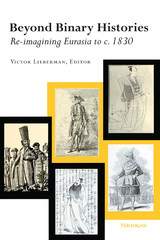
The collaborators of this project show, in varying degrees, that political centralization in these areas reflected and inspired the creation of vernacular literatures at the expense of more universal languages. They illustrate that societies in widely separated areas, with no obvious links, became more literate, mobile, specialized, and commercial at roughly the same time. And they point out that administrative development in many of these same areas showed curiously synchronized cycles. Finally, having defined Eurasian parallels and sketched their limits, they push on to explore the underlying dynamics of these discoveries, scrutinizing the role of guns, global climate, markets, new information networks, institutional pressures, and sixteenth-century messianism.
Insofar as similarities between some European and Asian areas exceeded those between different sectors of Asia, this collection invites historians to reject continental perspectives in favor of more thematic, contextually-specific categories. But at the same time, it raises the possibility of a broad "early modern" period for Eurasia at large.
The contributors are Mary Elizabeth Berry (University of California, Berkeley), Peter Carey (University of Oxford), James B. Collins (Georgetown University), Valerie Kivelson (University of Michigan), R. I. Moore (University of Newcastle upon Tyne), Sanjay Subrahmanyam (Ecole des Hautes Etudes en Sciences Sociales, Paris), John K. Whitemore (University of Michigan), and David K. Wyatt (Cornell University).

A breakthrough in the theology of parenthood, integrating Catholic social thought and social scientific studies of child well-being in order to offer a more diverse and inclusive interpretation
The Catholic Church has a long and diverse history of tolerating various child-rearing arrangements. The dominant Catholic framework for conceptualizing parenthood, however, is highly influenced by concerns over sexual ethics and gender norms. While sexual and reproductive ethics are important, the present consensus that theological consideration of parenthood necessarily hinges on these matters diverts attention from actual parenting practices in their social and cultural contexts. In reality, kinship and caregiving are often negotiated in complex ways.
In Beyond Biology, Jacob M. Kohlhaas uses a historical and interdisciplinary theological method that engages both analytically and appreciatively with tradition to sketch a broader Catholic anthropology of parenthood. Kohlhaas’s identification of interpretive options within the Catholic tradition creates room for meaningful, intellectually convincing, and theologically rich responses to challenges facing Catholic parents and families today.
By marshaling the diversity of the Christian tradition and exploring contemporary research in the social sciences and humanities, Kohlhaas frames a theological conversation on parenthood as parenthood—considering the needs and well-being of children as well as the potentials and capabilities of adult caregivers. In his discussion, Kohlhaas considers adoption and nonbiological parenthood, fathers as primary caregivers and nurturers, caregiving by siblings and grandparents, and communal parenting and coparenting beyond the spousal pair. In Kohlhaas’s view, conceptions of parenthood should be guided by the meaning of Christian kinship rooted in baptism as well as concern for the actual caregiving capacities of adults and the needs of children.
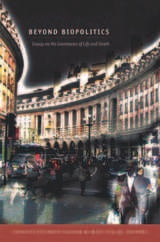
Contributors. Ann Anagnost, Una Chung, Patricia Ticineto Clough, Steve Goodman, Sora Y. Han, Stefano Harney, May Joseph, Randy Martin, Brian Massumi, Luciana Parisi, Jasbir Puar, Amit S. Rai, Eugene Thacker, Çağatay Topal, Craig Willse

The social structure of contemporary Korea contains strong echoes of the hierarchical principles and patterns governing stratification in the Chosŏn dynasty (1392–1910): namely, birth and one’s position in the bureaucracy. At the beginning of Korea’s modern era, the bureaucracy continued to exert great influence, but developments undermined, instead of reinforced, aristocratic dominance. Furthermore, these changes elevated the secondary status groups of the Chosŏn dynasty, those who had belonged to hereditary, endogamous tiers of government and society between the aristocracy and the commoners: specialists in foreign languages, law, medicine, and accounting; the clerks who ran local administrative districts; the children and descendants of concubines; the local elites of the northern provinces; and military officials. These groups had languished in subordinate positions in both the bureaucratic and social hierarchies for hundreds of years under an ethos and organization that, based predominantly on family lineage, consigned them to a permanent place below the Chosŏn aristocracy.
As the author shows, the political disruptions of the late nineteenth and early twentieth centuries, however, rewarded talent instead of birth. In turn, these groups’ newfound standing as part of the governing elite allowed them to break into, and often dominate, the cultural, literary, and artistic spheres as well as politics, education, and business.
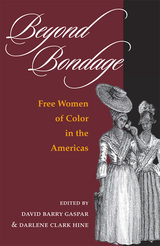

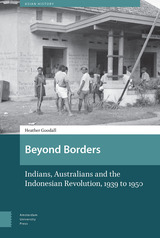

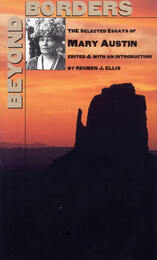
Seventeen essays by Mary Hunter Austin (1868–1934), author of the western classic The Land of Little Rain (1903), demonstrate her wide-ranging interests and equally varied writing styles.
Although she was born in Carlinville, Illinois, and graduated from Blackburn College, Mary Austin spent most of her writing career in California, New York, and finally Sante Fe, New Mexico. A well-known, popular, and prolific writer, Austin published thirty-three books and three plays and was closely associated with many important literary figures of her time, including H. G. Wells, George Bernard Shaw, Mabel Dodge Luhan, Jack London, and Willa Cather. Still best known today for her nature writing and southwestern cultural studies, Austin has been increasingly recognized for her work on feminist themes, including the play The Arrow Maker, the nonfiction The Young Woman Citizen, and the novels A Woman of Genius and No. 26 Jayne Street. What has been perhaps an overemphasis on Austin’s nature writing has, since her death, eclipsed the fact that Austin was known during her lifetime as a colorful, eccentric, and controversial person whose direct and outspoken opinions engaged a wide variety of topics.
Beyond Borders demonstrates that variety. In addition to her monographs, Austin also published her short fiction and essays in periodicals. In fact, like many a writer earning a living from her work, Austin wrote prolifically for the magazine market, producing during her career over two hundred individual pieces published in over sixty periodicals. Although a collection of her short fiction appeared in 1987, Austin’s nonfiction periodical work has remained uncollected until now.
In support of Austin’s essays, Reuben J. Ellis provides an introduction that establishes a biographical and historical context for Austin’s work. In addition, each Austin essay is prefaced by brief introductory remarks by the editor. A selected bibliography of Austin’s essays is also included.
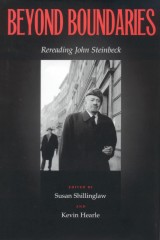
As a writer who, beginning in the 1930s, illuminated the lives of ordinary people, Steinbeck came to be the conscience of America. He witnessed and recorded with clarity much of the political and social upheaval of the 20th century: The Great Depression, World War II, the Cold War, and Vietnam. Yet his place in the literary canon of American literature has been much debated and often dismissed by academics. Beyond Boundaries argues persuasively for Steinbeck's relevance, offering a fuller, more nuanced and international appreciation of the popular Nobel laureate and his works.
Topics treated in these wide-ranging essays include the historical and literary contexts and the artistic influence of the eminent novelist; the reception and translation of Steinbeck works outside the United States; Steinbeck’s worldview, his social vision, and his treatment of poverty, of self, and of patriotism; influence on Native American writers; the centrality of the archetypal feminine throughout his fiction; and the author's lifelong interest in science and philosophy.
International in scope, this timely study reevaluates the enduring and evolving legacy of one of America's most significant writers.
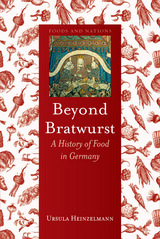
Surveying the many traditions that make up German food today, Heinzelmann shows that regional variations of the country’s food have not only been marked by geographic and climatic differences between north and south, but also by Germany’s political, cultural, and socioeconomic history. She explores the nineteenth century’s back-to-the-land movement, which called for people to grow food on their own land for themselves and others, as well as the development of modern mass-market products, rationing and shortages under the Nazis, postwar hunger, and divisions between the East and West. Throughout, she illustrates how Germans have been receptive to influences from the countries around them and frequently reinvented their cuisine, developing a food culture with remarkable flexibility.
Telling the story of beer, stollen, rye bread, lebkuchen, and other German favorites, the recipe-packed Beyond Bratwurst will find a place on the shelves of food historians, chefs, and spätzle lovers alike.

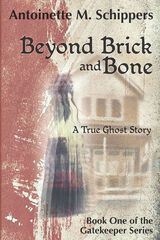

What should the future of British foreign policy look like? For too long, successive governments have shied away from acknowledging uncomfortable truths about the decline of Britain’s military capabilities. As we approach the middle years of the twenty-first century, a new set of urgent and daunting challenges lie ahead, including climate change, technological development, the rise of AI, and a growing threat from China. The need for us to reconcile ourselves with our position in the world has never been more acute. In Beyond Britannia: Reshaping UK Foreign Policy, Simon McDonald persuasively argues that the United Kingdom’s significant soft-power strengths can be harnessed to expand its international influence. Such a shift will only be possible, he says, if we first acknowledge the challenges of Brexit and the need to reduce our unrealistic hard-power ambitions. Excellence in areas that other countries care about will keep the United Kingdom internationally relevant in the second half of the century in a way that nostalgia for a lost pre-eminence will not.
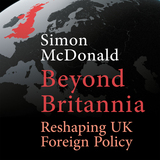
What should the future of British foreign policy look like? For too long, successive governments have shied away from acknowledging uncomfortable truths about the decline of Britain’s military capabilities. As we approach the middle years of the twenty-first century, a new set of urgent and daunting challenges lie ahead, including climate change, technological development, the rise of AI, and a growing threat from China. The need for us to reconcile ourselves with our position in the world has never been more acute. In Beyond Britannia: Reshaping UK Foreign Policy, Simon McDonald persuasively argues that the United Kingdom’s significant soft-power strengths can be harnessed to expand its international influence. Such a shift will only be possible, he says, if we first acknowledge the challenges of Brexit and the need to reduce our unrealistic hard-power ambitions. Excellence in areas that other countries care about will keep the United Kingdom internationally relevant in the second half of the century in a way that nostalgia for a lost pre-eminence will not.
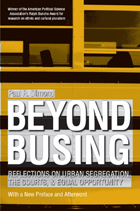
A compelling insider's account of the fight for educational desegregation, from one of its most dedicated and outspoken heroes. A new afterword explains the author's controversial belief that the moment for litigating educational equality has passed, clear-sightedly critiquing his own courtroom strategies and the courts' responses, before closing with an assessment of the economic and social changes that he feels have already moved us "beyond busing."
"An extraordinarily informative and thoughtful book describing the process of bringing Brown [v. Board of Education] North and the impact this process had upon national attitudes toward desegregation."
--Drew S. Days III, Yale Law Journal
"An original analysis of a tough subject. A must-read for all who care about opportunity for all our children."
--Donna E. Shalala, President, University of Miami
"Paul Dimond remains a passionate and caring voice for inner-city students, whether in his advocacy of school desegregation, school choice plans, or school finance reform. He illuminates these issues as one who participated in the major education cases and as a perceptive scholar."
--Mark Yudof, Chancellor, The University of Texas System
"A must-read for anyone who wants to understand America's continued failure to give inner-city children a quality education or to do something about it!"
--Sheryll Cashin, Author of The Failures of Integration: How Race and Class Are Undermining the American Dream
"Dimond is particularly good at relating his slice of legal history to the broader developments of the 1970s, and his occasional remarks about trial tactics are amusing and instructive. Dimond's
honesty about both his successes and failures makes his book required reading for civil rights lawyers."
--Lawrence T. Gresser, Michigan Law Review
"A fascinating first-hand account of 1970s northern school desegregation decisions."
--Neal E. Devins, American Bar Foundation Research Journal
"Dimond reminds the liberal reader of the promise that lies in the empowerment of ordinary families to choose their own schools."
--John E. Coons, Professor of Law, Emeritus, University of California, Berkeley
Paul R. Dimond is counsel to Miller, Canfield, Paddock and Stone, Michigan's largest law firm; chairman of McKinley, a national commercial real estate investment and management firm; and chairman or member of the board of trustees of numerous education, community, and civic organizations. He spent four years as President Clinton's Special Assistant for Economic Policy.
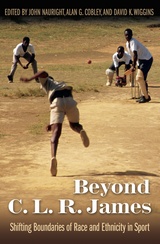
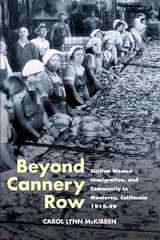
McKibben's analysis of gender and gender roles shows that it was the women in this community who had the insight, the power, and the purpose to respond and even prosper amid changing economic conditions. Vividly evoking the immigrants' everyday experiences through first-person accounts and detailed description, McKibben demonstrates that the cannery work done by Sicilian immigrant women was crucial in terms of the identity formation and community development. These changes allowed their families to survive the challenges of political conflicts over citizenship in World War II and intermarriage with outsiders throughout the migration experience. The women formed voluntary associations and celebrated festas that effectively linked them with each other and with their home villages in Sicily. Continuous migration created a strong sense of transnationalism among Sicilians in Monterey, which has enabled them to continue as a viable ethnic community today.
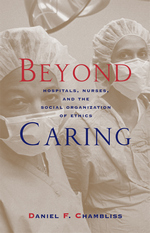
Based on more than ten years' field research, Beyond Caring is filled with eyewitness accounts and personal stories demonstrating how nurses turn the awesome into the routine. It shows how patients, many weak and helpless, too often become objects of the bureaucratic machinery of the health care system and how ethics decisions, once the dilemmas of troubled individuals, become the setting for political turf battles between occupational interest groups. The result is a compelling combination of realism and a powerful theoretical argument about moral life in large organizations.
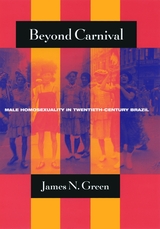
Ranging from the late nineteenth century to the rise of a politicized gay and lesbian rights movement in the 1970s, Green's study focuses on male homosexual subcultures in Rio de Janeiro and Sao Paulo. He uncovers the stories of men coping with arrests and street violence, dealing with family restrictions, and resisting both a hostile medical profession and moralizing influences of the Church. Green also describes how these men have created vibrant subcultures with alternative support networks for maintaining romantic and sexual relationships and for surviving in an intolerant social environment. He then goes on to trace how urban parks, plazas, cinemas, and beaches are appropriated for same-sex erotic encounters, bringing us into the world of street cruising, male hustlers, and cross-dressing prostitutes.
Through his creative use of police and medical records, newspapers, literature, newsletters, and extensive interviews, Green has woven a fascinating history, the first of its kind for Latin America, that will set the standard for future works.
"Green brushes aside outworn cultural assumptions about Brazil's queer life to display its full glory, as well as the troubles which homophobia has sent its way. . . . This latest gem in Chicago's 'World of Desire' series offers a shimmering view of queer Brazilian life throughout the 20th century."—Kirkus Reviews
Winner of the 2000 Lambda Literary Awards' Emerging Scholar Award of the Monette/Horwitz Trust
Winner of the 1999 Hubert Herring Award, Pacific Coast Council on Latin American Studies
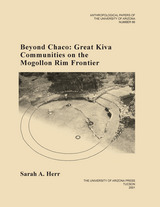
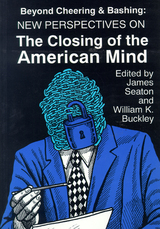
The debate over the central issue confronted in The Closing of the American Mind—the role of the university and the liberal arts in the United States—has become increasingly urgent and contentious. The goal of this collection of essays is to see what we can learn about the dilemmas confronting American culture through consideration of both The Closing of the American Mind and the debate it aroused.
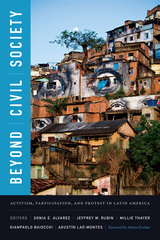
Contributors. Sonia E. Alvarez, Kiran Asher, Leonardo Avritzer, Gianpaolo Baiocchi, Andrea Cornwall, Graciela DiMarco, Arturo Escobar, Raphael Hoetmer, Benjamin Junge, Luis E. Lander, Agustín Laó-Montes, Margarita López Maya, José Antonio Lucero, Graciela Monteagudo, Amalia Pallares, Jeffrey W. Rubin, Ana Claudia Teixeira, Millie Thayer

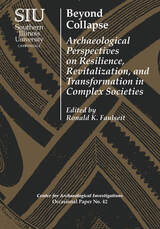
Essays in the book are arranged into five sections. The first section addresses previous research on the subject of collapse and reorganization as well as recent and historic theoretical trends. In the second section, contributors look at collapse and resilience through the concepts of collective action, eventful archaeology, and resilience theory. The third section introduces critical analyses of the effectiveness of resilience theory as a heuristic tool for modeling the phenomena of collapse and resilience. In the fourth section, contributors examine long-term adaptive strategies employed by prehistoric societies to cope with stresses. Essays in the fifth section make connections to contemporary research on post-decline societies in a variety of time periods and geographic locations.
Contributors consider collapse and reorganization not as unrelated phenomena but as integral components in the evolution of complex societies. Using archaeological data to interpret how ancient civilizations responded to various stresses—including environmental change, warfare, and the fragmentation of political institutions—contributors discuss not only what leads societies to collapse but also why some societies are resilient and others are not, as well as how societies reorganize after collapse. The implications of the fate of these societies for modern nations cannot be underestimated. Putting in context issues we face today, such as climate change, lack of social diversity, and the failure of modern states, Beyond Collapse is an essential volume for readers interested in human-environment interaction and in the collapse—and subsequent reorganization—of human societies.
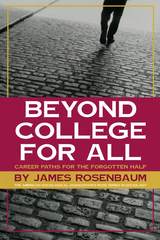

Beyond Compare is a remarkable work that offers a commentary on spiritual learning for the twenty-first century rooted in two classic texts from the Hindu and Christian traditions: the Essence of the Three Auspicious Mysteries by Śrī Vedānta Deśika and Treatise on the Love of God by St. Francis de Sales.
In his commentary, Clooney achieves multiple goals—the book is a contribution to Christian spiritual theology, highlighting for today the beautiful insights into love by St. Francis de Sales (1567-1623), Doctor of the Church. At the same time it points out how even in our world of many religious paths, we can recover and deepen the ancient tradition of loving surrender into God's hands by opening ourselves to the wisdom of India and one of Hindu India's most famous traditions of loving God, explained to us by the south Indian Hindu theologian Śrī Vedānta Deśika (1268-1369). Clooney goes further, offering a comparative study of these classic works in which he self-consciously writes about the process of reading the two works and the impact this approach has on the reader. The good advice found through this deep engagement with these texts offers a deeper insight into how we can most fruitfully and spiritually think about religious pluralism in the 21st century, remaining open in heart and mind while loyal still to our own tradition.
Not merely a book about loving surrender to God, Beyond Compare offers us the opportunity to advance along that path ourselves, learning from the wisdom of St. Francis de Sales and Śrī Vedānta Deśika, meditating on their two paths together, deepening our own love and willingness to surrender in love to God.
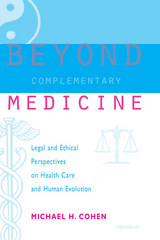
Integration of divergent philosophies, paradigms, and practices requires responsible investigation, informed judgment, and open-minded yet critical study and analysis of various systems of healing. Michael H. Cohen offers providers and policymakers vitally important information by addressing questions such as credentialing, malpractice, informed consent, and liability for referrals. He describes both practical strategies for minimizing liability, as well as the necessary future evolution of the legal and regulatory structure.
Cohen also probes uncharted ethical and bioethical issues in complementary medicine and integrative health care. He further explores the connection between law, medicine, and spirituality and the role of this connection in human evolution. The book's range mirrors the integrative process itself, a process of grappling with, and meaningfully assimilating, disparate traditions and unfamiliar ways of thinking about the significance of health, body, and being.
Beyond Complementary Medicine is required reading for anyone involved in health care, including executives, insurers, managed care organizations, attorneys, ethicists, and lawmakers; physicians integrating complementary and alternative therapies; complementary and alternative medicine practitioners; medical schools, law schools, and educational institutions offering programs in health care, public health, and complementary therapies; companies manufacturing herbs and dietary supplements; and most of all, patients and their families.
Michael H. Cohen is President of the Institute for Integrative and Energy Medicine, a nonprofit organization in health care policy, ethics, and legal and regulatory affairs, and an attorney with an international practice in integrative health care.



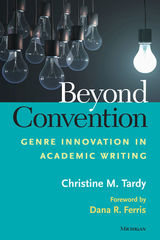
---Foreword by Dana R. Ferris, author of Treatment of Error and Teaching College Writing to Diverse Student Populations
This book attempts to engage directly with the complexities and tensions in genre from both theoretical and pedagogical perspectives. While struggling with questions of why, when, and how different writers can manipulate conventions, Tardy became interested in related research into voice and identity in academic writing and then began to consider the ways that genre can be a valuable tool that allows writing students and teachers to explore expected conventions and transformative innovations. For Tardy, genres aren’t “fixed,” and she argues also that neither genre constraints nor innovations are objective—that they can be accepted or rejected depending on the context.
Beyond Convention considers a range of learning and teaching settings, including first-year undergraduate writing, undergraduate writing in the disciplines, and the advanced academic writing of graduate students and professionals. It is intended for those interested in the complexities of written communication, whether their interests are grounded in genre theory, academic discourse, discourse analysis, or writing instruction. With its attentiveness to context, discipline, and community, it offers a resource for those interested in English for Academic Purposes, English for Specific Purposes, and Writing in the Disciplines. At its heart, this is a book for teachers and teacher educators.
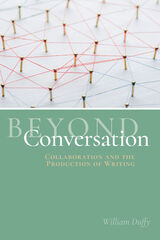
While interrogating the institutional politics that circulate around debates about collaboration, this book offers a concise history of collaborative writing theory while proposing a new set of commonplaces for understanding the labor of coauthorship. Specifically, Beyond Conversation outlines an interactionist theory that explains collaboration as the rhetorical capacity that manifests in the discursive engagements coauthors enter into with the objects of their writing.
Drawing on new materialist philosophies, post-qualitative inquiry, and interactionist rhetorical theory, Beyond Conversation challenges writing and literacy educators to recognize the pedagogical benefits of collaborative writing in the work they do both as writers and as teachers of writing. The book will reinvigorate how teachers, scholars, and administrators advocate for the importance of collaborative writing in their work.


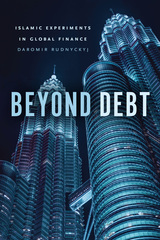
Beyond Debt describes efforts to create a transnational economy free of debt. Based on ethnographic fieldwork in Malaysia, Daromir Rudnyckyj illustrates how the state, led by the central bank, seeks to make the country’s capital Kuala Lumpur “the New York of the Muslim world”—the central node of global financial activity conducted in accordance with Islam. Rudnyckyj shows how Islamic financial experts have undertaken ambitious experiments to create more stable economies and stronger social solidarities by facilitating risk- and profit-sharing, enhanced entrepreneurial skills, and more collaborative economic action. Building on scholarship that reveals the impact of financial devices on human activity, he illustrates how Islamic finance is deployed to fashion subjects who are at once more pious Muslims and more ambitious entrepreneurs. In so doing, Rudnyckyj shows how experts seek to create a new “geoeconomics”—a global Islamic alternative to the conventional financial network centered on New York, London, and Tokyo. A groundbreaking analysis of a timely subject, Beyond Debt tells the captivating story of efforts to re-center international finance in an emergent Islamic global city and, ultimately, to challenge the very foundations of conventional finance.
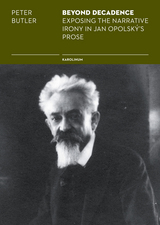
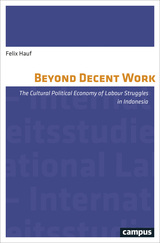
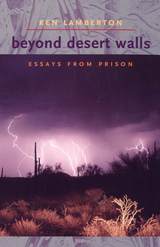
For some people, even prison cannot shut out the natural world.
A teacher and family man incarcerated in Arizona State Prison—the result of a transgression that would cost him a dozen years of his life—Ken Lamberton can see beyond his desert walls. In essays that focus on the natural history of the region and on his own personal experiences with desert places, the author of the Burroughs Medal-winning book Wilderness and Razor Wire takes readers along as he revisits the Southwest he knew when he was free, and as he makes an inner journey toward self-awareness. Whether considering the seemingly eternal cacti or the desolate beauty of the Pinacate, he draws on sharp powers of observation to re-create what lies beyond his six-by-eight cell and to contemplate the thoughts that haunt his mind as tenaciously as the kissing bugs that haunt his sleep.
Ranging from prehistoric ruins on the Colorado Plateau to the shores of the Sea of Cortez, these writings were begun before Wilderness and Razor Wire and serve as a prequel to it. They seamlessly interweave natural and personal history as Lamberton explores caves, canyons, and dry ponds, evoking the mysteries and rhythms of desert life that elude even the most careful observers. He offers new ways of thinking about how we relate to the natural world, and about the links between those relationships and the ones we forge with other people. With the assurance of a gifted writer, he seeks to make sense of his own place in life, crafting words to come to terms with an insanity of his own making, to look inside himself and understand his passions and flaws.
Whether considering rattlesnakes of the hellish summer desert or the fellow inmates of his own personal hell, Lamberton finds meaningful connections—to his crime and his place, to the people who remained in his life and those who didn’t. But what he reveals in Beyond Desert Walls ultimately arises from language itself: a deep, and perhaps even frightening, understanding of a singular human nature.
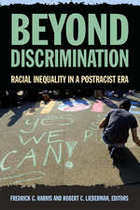
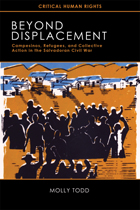
During the civil war that wracked El Salvador from the mid-1970s to the early 1990s, the Salvadoran military tried to stamp out dissidence and insurgency through an aggressive campaign of crop-burning, kidnapping, rape, killing, torture, and gruesome bodily mutilations. Even as human rights violations drew world attention, repression and war displaced more than a quarter of El Salvador’s population, both inside the country and beyond its borders. Beyond Displacement examines how the peasant campesinos of war-torn northern El Salvador responded to violence by taking to the hills. Molly Todd demonstrates that their flight was not hasty and chaotic, but was a deliberate strategy that grew out of a longer history of collective organization, mobilization, and self-defense.
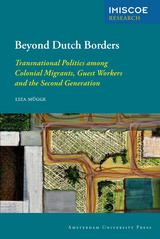
Migrants often remain loyal to their former homelands and stay active in the politics there— despite widespread criticism of these ties in their host countries. Combining extensive fieldwork with quantitative data, Beyond Dutch Borders compares how transnational political involvement among guest workers from Turkey and postcolonial migrants from Surinam living in the Netherlands has evolved during the past fifty years. The author explores the dynamics and influence of such dual affiliations and finds that migrants’ border-crossing loyalties and engagement actually heighten their political integration into their host countries.
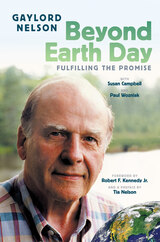
Gaylord Nelson’s legacy is known and respected throughout the world. He was a founding father of the modern environmental movement and creator of one of the most influential public awareness campaigns ever undertaken on behalf of global environmental stewardship: Earth Day.
Nelson died in 2005, but his message in this book is still timely and urgent, delivered with the same eloquence with which he articulated the nation’s environmental ills throughout the decades. He details the planet’s most critical concerns—from species and habitat losses to global climate change and population growth. In outlining strategies for planetary health, Nelson inspires citizens to reassert environmentalism as a national priority. Included in this reprint is a new preface by Gaylord Nelson’s daughter, Tia Nelson.

Harvey Leibenstein has written a major new book in microeconomic theory. It is a sophisticated reorientation of microtheory that breaks away from the conventional, highly refined neoclassical theory, which in turn is in the direct line of descent from Adam Smith's The Wealth of Nations (1776). The author accomplishes this feat by introducing modern psychological concepts to microtheory, by using individuals instead of collections of individuals as his basic units of study, and by suggesting that relating the theory to the concept of effort (an X-efficiency factor) will provide the most significant results.
His innovative central variable, effort, is an X factor, he reminds us, because of its relatively unknown character in affecting output. Basically this leads to a new mode of thinking about economic problems in which the optimizing assumption of standard theory becomes a special extreme case.
The X-efficiency factors—motivation, effort, and so on—allow for a restatement of microtheory. and for new applications and new conclusions: (1) businesses do not minimize costs or maximize profits; (2) actual productivity is very far from optimal even under conditions that approximate competition; (3) current modes of regulating monopolistic industries are apt to be inefficient at the expense of the consumer.
Lebenstein’s new theory also has practical applications for the problems faced by management of businesses in the private or public sector, and in the fiscal affairs of the nation. When the theory is applied to inflation — one salient and timely example — it leads to results implying that inflation may be a cause of unemployment rather than an influence that reduces unemployment.
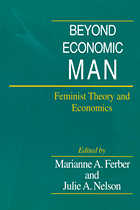
Beyond Economic Man raises questions about the discipline not because economics is too objective but because it is not objective enough. The contributors—nine economists, a sociologist, and a philosopher—discuss the extent to which gender has influenced both the range of subjects economists have studied and the way in which scholars have conducted their studies. They investigate, for example, how masculine concerns underlie economists' concentration on market as opposed to household activities and their emphasis on individual choice to the exclusion of social constraints on choice. This focus on masculine interests, the contributors contend, has biased the definition and boundaries of the discipline, its central assumptions, and its preferred rhetoric and methods. However, the aim of this book is not to reject current economic practices, but to broaden them, permitting a fuller understanding of economic phenomena.
These essays examine current economic practices in the light of a feminist understanding of gender differences as socially constructed rather than based on essential male and female characteristics. The authors use this concept of gender, along with feminist readings of rhetoric and the history of science, as well as postmodernist theory and personal experience as economists, to analyze the boundaries, assumptions, and methods of neoclassical, socialist, and institutionalist economics.
The contributors are Rebecca M. Blank, Paula England, Marianne A. Ferber, Nancy Folbre, Ann L. Jennings, Helen E. Longino, Donald N. McCloskey, Julie A. Nelson, Robert M. Solow, Diana Strassmann, and Rhonda M. Williams.
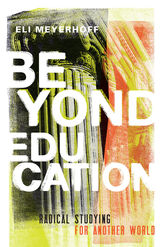
A bold call to deromanticize education and reframe universities as terrains of struggle between alternative modes of studying and world-making
Higher education is at an impasse. Black Lives Matter and #MeToo show that racism and sexism remain pervasive on campus, while student and faculty movements fight to reverse increased tuition, student debt, corporatization, and adjunctification. Commentators typically frame these issues as crises for an otherwise optimal mode of intellectual and professional development. In Beyond Education, Eli Meyerhoff instead sees this impasse as inherent to universities, as sites of intersecting political struggles over resources for studying.
Meyerhoff argues that the predominant mode of study, education, is only one among many alternatives and that it must be deromanticized in order to recognize it as a colonial-capitalist institution. He traces how key elements of education—the vertical trajectory of individualized development, its role in preparing people to participate in governance through a pedagogical mode of accounting, and dichotomous figures of educational waste (the “dropout”) and value (the “graduate”)—emerged from histories of struggles in opposition to alternative modes of study bound up with different modes of world-making.
Through interviews with participants in contemporary university struggles and embedded research with an anarchist free university, Beyond Education paves new avenues for achieving the aims of an “alter-university” movement to put novel modes of study into practice. Taking inspiration from Black Lives Matter, Occupy Wall Street, and Indigenous resurgence projects, it charts a new course for movements within, against, and beyond the university as we know it.

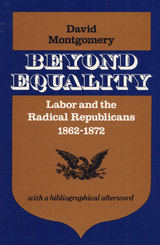
"Beyond Equality is a masterpiece. . . . A book of bold and brilliant originality, it is now shaping the perspective of a new generation of graduate students." -- David Brion Davis, author of The Problem of Slavery in Western Culture
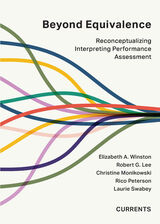
There is a longstanding need for valid, reliable measurements of interpreting competence. Although rubrics and checklists are commonly used in both academic and employment settings, a review of available rubrics indicates that many do not focus on interpreting performance. Traditional metrics for sign language interpreting often conflate language proficiency with interpreting proficiency. Conflating fundamental aspects of language in use—vocabulary, grammar, and prosody— with fundamental aspects of interpretation—content, intent, and monitoring—compromises the valid assessment of interpreting proficiency. Beyond Equivalence: Reconceptualizing Interpreting Performance Assessment argues for a shift toward more nuanced and evidence-based conceptualizations of interpreting, communication, and meaning to improve the creation and use of rubrics for assessment in interpreter education, certification, and professional development.
This inaugural volume in the Currents series introduces a rubric and accompanying scale, which can be used to assess both simultaneous and consecutive interpreting performance in terms of both process and product, in both signed and spoken language interpreting, and in a variety of settings. Beyond Equivalence offers an appreciation of the multivarious nature of meaning in the interpreting process and presents a new paradigm for the measurement of interpreting proficiency.

Does Christianity have an essence? How should the identity of Christianity be defined in the modern world? As early as 1903, German theologian Ernst Troeltsch began to question the then-popular concept of an “essence of Christianity.” In his search for alternative categories and methods for conceptualizing Christianity and its potential roles in modern society, Troeltsch immersed himself in the study and analysis of Christian history. This book demonstrates the intimate connection between Troeltsch’s philosophical writings on the essence of Christianity and his historical investigations of Christianity’s past, focusing on Troeltsch’s conceptions of Christian origins, historical development, and the ideal types of church-sect-mysticism.
Lori Pearson argues that as a result of his historical work, Troeltsch moved beyond the category of essence and sought new ways of theorizing Christian identity in the context of modernity’s pluralistic yet fragmented society.
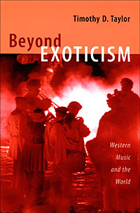
Beginning with a focus on musical manifestations of colonialism and imperialism, Taylor discusses how the “discovery” of the New World and the development of an understanding of self as distinct from the other, of “here” as different from “there,” was implicated in the development of tonality, a musical system which effectively creates centers and margins. He describes how musical practices signifying nonwestern peoples entered the western European musical vocabulary and how Darwinian thought shaped the cultural conditions of early-twentieth-century music. In the era of globalization, new communication technologies and the explosion of marketing and consumption have accelerated the production and circulation of tropes of otherness. Considering western music produced under rubrics including multiculturalism, collaboration, hybridity, and world music, Taylor scrutinizes contemporary representations of difference. He argues that musical interpretations of the nonwestern other developed hundreds of years ago have not necessarily been discarded; rather they have been recycled and retooled.

Beyond Feminist Aesthetics has a dual focus. First, Rita Felski gives a critical account of current American and European feminist literary theory, and second, she offers an analysis of contemporary fiction by women, drawing in particular on the genres of the autobiographical confession and the novel of self-discovery, in order to show that this literature raises questions for feminism that cannot be answered in terms of a purely gender based analysis.
Felski argues that the idea of a feminist aesthetic is a nonissue that feminists have needlessly pursued; she suggests, in contrast, that it is impossible to speak of “masculine” and “feminine,” “subversive” and “reactionary” literary forms in isolation from the social conditions of their production and reception. The political value of such works of literature from the standpoint of feminism can be determined only by an investigation of their social functions and effects in relation to the interests of women in a particular historical context. This leads her to argue for an interdisciplinary approach to the analysis of literature which can integrate literary and social theory, and to develop such an approach by drawing upon the model of a feminist counter-public sphere.
Rita Felski has produced a closely reasoned, stimulating book that creates a new framework for discussing the relationship between literature and feminist politics. It will interest students and teachers of women’s studies, comparative literature, cultural studies, and fiction.

Zionism was not only a political and ideological program but also a sexual one. The liberation of Jews and creation of a new nation were closely intertwined with a longing for the redemption and normalization of the Jewish male body. That body had to be rescued from anti-Semitic, scientific-medical discourse associating it with disease, madness, degeneracy, sexual perversity, and femininityeven with homosexuality. The Zionist movement was intent on transforming the very nature of European Jewish masculinity as it had existed in the diaspora. Zionist/Israeli films expressed this desire through visual and narrative tropes, enforcing the image of the hypermasculine, colonialist-explorer and militaristic nation-builder, an image dependent on the homophobic repudiation of the "feminine" within men.
The creation of a new heterosexual Jewish man was further intertwined with attitudes on the breeding of children, bodily hygiene, racial improvement, and Orientalist perspectiveswhich associated the East, and especially Eastern bodies, with unsanitary practices, plagues, disease, and sexual perversity. By stigmatizing Israels Eastern populations as agents of death and degeneration, Zionism created internal biologized enemies, against whom the Zionist society had to defend itself. In the name of securing the life and reproduction of the new Ashkenazi Jewry, Israeli society discriminated against both its internal enemies, the Palestinians, and its own citizens, the Mizrahim (Oriental Jews).
Yosefs critique of the construction of masculinities and queerness in Israeli cinema and culture also serves as a model for the investigation of the role of male sexuality within national culture in general.
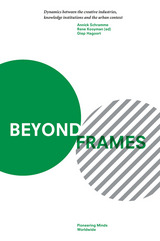
In this book, contributors explore this complexity through three interdependent concepts, the “triple helix” of creative economy: the entrepreneurial spirit, the urban environment, and knowledge institutions. Featuring empirical data and country-specific case studies, Beyond Frames also takes a broader view, considering the dynamics between the three elements and exploring both the societal value and the spillover effects of cultural and creative industries.
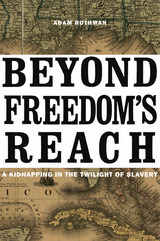
Born into slavery in rural Louisiana, Rose Herera was bought and sold several times before being purchased by the De Hart family of New Orleans. Still a slave, she married and had children, who also became the property of the De Harts. But after Union forces captured New Orleans in 1862 during the American Civil War, Herera’s owners fled to Havana, taking three of her small children with them. Beyond Freedom’s Reach is the true story of one woman’s quest to rescue her children from bondage.
In a gripping, meticulously researched account, Adam Rothman lays bare the mayhem of emancipation during and after the Civil War. Just how far the rights of freed slaves extended was unclear to black and white people alike, and so when Mary De Hart returned to New Orleans in 1865 to visit friends, she was surprised to find herself taken into custody as a kidnapper. The case of Rose Herera’s abducted children made its way through New Orleans’ courts, igniting a custody battle that revealed the prospects and limits of justice during Reconstruction.
Rose Herera’s perseverance brought her children’s plight to the attention of members of the U.S. Senate and State Department, who turned a domestic conflict into an international scandal. Beyond Freedom’s Reach is an unforgettable human drama and a poignant reflection on the tangled politics of slavery and the hazards faced by so many Americans on the hard road to freedom.
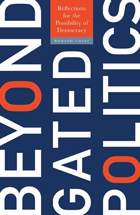
In Beyond Gated Politics, political theorist and grassroots activist Romand Coles argues that the survival of democracy depends on recognizing the failings of disengaged liberal democracy—the exclusions and subjugations that accompany every democratic “we,” for example—and experimenting with more radical modes of democratic theory and action. Among those brought into the conversation are John Howard Yoder, John Rawls, Alisdair MacIntyre, Jacques Derrida, Jean-Luc Nancy, Gloria Anzaldúa, and Audre Lorde.
Coles, whose work is deeply informed by his own experiences as an activist, pays close attention to the actual practice of democracy with particular interest in emerging social movements. In doing so, he not only moves beyond the paradigms of political liberalism, deliberative democracy, and communitarian republicanism, but also cultivates multidimensional modes of public discourse that reflect and sustain the creative tension at the heart of democratic life and responsibility.
Romand Coles is professor of political theory at Duke University. His previous books include Rethinking Generosity: Critical Theory and the Politics of Caritas and Self/Power/Other: Political Theory and Dialogical Ethics.
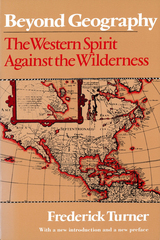
First published in 1980, Beyond Geography continues to influence and impress its readers. This new edition, prepared for the Columbus quincentennial, includes a new introduction by T. H. Watkins and a new preface by the author. As the public debates Columbus's legacy, it is important for us to learn of the spiritual background of European domination of the Americas, for the Europeans who conquered the Americas substituted history for myth as a way of understanding life.
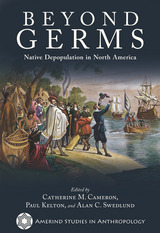
Beyond Germs: Native Depopulation in North America challenges the “virgin soil” hypothesis that was used for decades to explain the decimation of the indigenous people of North America. This hypothesis argues that the massive depopulation of the New World was caused primarily by diseases brought by European colonists that infected Native populations lacking immunity to foreign pathogens. In Beyond Germs, contributors expertly argue that blaming germs lets Europeans off the hook for the enormous number of Native American deaths that occurred after 1492.
Archaeologists, anthropologists, and historians come together in this cutting-edge volume to report a wide variety of other factors in the decline in the indigenous population, including genocide, forced labor, and population dislocation. These factors led to what the editors describe in their introduction as “systemic structural violence” on the Native populations of North America.
While we may never know the full extent of Native depopulation during the colonial period because the evidence available for indigenous communities is notoriously slim and problematic, what is certain is that a generation of scholars has significantly overemphasized disease as the cause of depopulation and has downplayed the active role of Europeans in inciting wars, destroying livelihoods, and erasing identities.

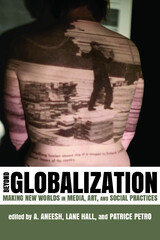
Does living in a globally networked society mean that we are moving toward a single, homogenous world culture? Or, are we headed for clashes between center and periphery, imperial and subaltern, Western and non-Western, First and Third World? The interdisciplinary essays in Beyond Globalization present us with another possibility—that new media will lead to new kinds of “worldmaking.”
This provocative volume brings together the best new work of scholars within such diverse fields as history, sociology, anthropology, film, media studies, and art. Whether examining the inauguration of a virtual community on the website Second Life or investigating the appropriation of biotechnology for transgenic art, this collection highlights how mediated practices have become integral to global culture; how social practices have emerged out of computer-related industries; how contemporary apocalyptic narratives reflect the anxieties of a U.S. culture facing global challenges; and how design, play, and technology help us understand the histories and ideals
behind the digital architectures that mediate our everyday actions.
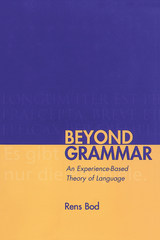
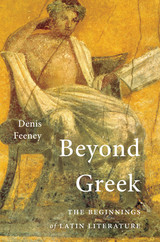
A History Today Best Book of the Year
A Choice Outstanding Academic Title of the Year
Virgil, Ovid, Cicero, Horace, and other authors of ancient Rome are so firmly established in the Western canon today that the birth of Latin literature seems inevitable. Yet, Denis Feeney boldly argues, the beginnings of Latin literature were anything but inevitable. The cultural flourishing that in time produced the Aeneid, the Metamorphoses, and other Latin classics was one of the strangest events in history.
“Feeney is to be congratulated on his willingness to put Roman literary history in a big comparative context…It is a powerful testimony to the importance of Denis Feeney’s work that the old chestnuts of classical literary history—how the Romans got themselves Hellenized, and whether those jack-booted thugs felt anxiously belated or smugly domineering in their appropriation of Greek culture for their own purposes—feel fresh and urgent again.”
—Emily Wilson, Times Literary Supplement
“[Feeney’s] bold theme and vigorous writing render Beyond Greek of interest to anyone intrigued by the history and literature of the classical world.”
—The Economist

In Beyond Greenways: The Next Step for City Trails and Walking Routes, greenways expert Robert Searns makes a case for walking infrastructure that serves a more diverse array of people. He builds on the legacy of boulevards, parkways, and greenways to introduce a next generation of more accessible pathways, wide enough for two people to stroll together, that stitch together urban and suburban areas. With more trails built near neighborhoods that haven’t had access to them, more people can get around on foot, in town or further out. Searns lays out practical advice on how to plan and design them, garner community support, and get them built. Drawing inspiration from the US and abroad, he introduces two models—grand loop trails and town walks. Grand loop trails are regional-scale, 20 to 350-mile systems that encircle metro areas, running along the edges where city meets countryside. Town walks are shorter—2 to 6-mile routes in cities. Throughout, Searns presents examples that embody these ideals, from Tucson’s Turquoise Trail, created by just two people with an idea and some left-over blue paint the city had, to a more deluxe 5-mile loop in Denver, to the Maricopa trail in Phoenix, a completed 315 mile grand loop. He also envisions these trails in new places across North America.
Planners, trail advocates, community leaders and those who just want closer-in places to hike or walk will find the tools they need to develop successful and affordable plans, including how to envision them to fit various settings and strategies for implementation. Now is the time to think beyond greenways, to pursue a legacy of accessible pedestrian routes for this, and future, generations.
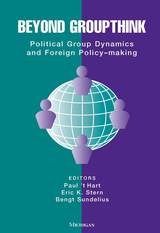
Beyond Groupthink builds upon and extends Janis's legacy. The contributors develop a richer understanding of group dynamics by drawing on alternate views of small-group dynamics. The relevant literature is reviewed and the different perspectives are explored in detailed case studies. The contributors link the group process to the broader organizational and political context of the policy process and stress the need to develop a multi-level understanding of the collegial policy-making process, combining the insights drawn from micro-level theories with those derived from study of broader political phenomena. The contributors include Alexander George, Sally Riggs Fuller, Paul D. Hoyt, Ramon J. Aldag, Max V. Metselaar, Bertjan Verbeek, J. Thomas Preston, Jean A. Garrison, and Yaacov Y. I. Vertzberger.
This book should appeal to political scienctists and international relations specialists, as well as researchers in social psychology, public administration, and management interested in group decision-making processes.
Paul 't Hart is Associate Professor, Department of Public Administration, Leiden University and Scientific Director of of the Leiden-Rotterdam Crisis Research Center. Eric Stern is Professor of Political Science at Stockholm University. Bengt Sundelius is Professor of Political Science at Stockholm University.
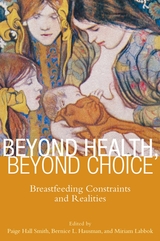
Current public health promotion of breastfeeding relies heavily on health messaging and individual behavior change. Women are told that “breast is best” but too little serious attention is given to addressing the many social, economic, and political factors that combine to limit women’s real choice to breastfeed beyond a few days or weeks. The result: women’s, infants’, and public health interests are undermined. Beyond Health, Beyond Choice examines how feminist perspectives can inform public health support for breastfeeding.
Written by authors from diverse disciplines, perspectives, and countries, this collection of essays is arranged thematically and considers breastfeeding in relation to public health and health care; work and family; embodiment (specifically breastfeeding in public); economic and ethnic factors; guilt; violence; and commercialization. By examining women’s experiences and bringing feminist insights to bear on a public issue, the editors attempt to reframe the discussion to better inform public health approaches and political action. Doing so can help us recognize the value of breastfeeding for the public’s health and the important productive and reproductive contributions women make to the world.
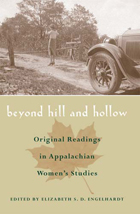
Women’s studies unites with Appalachian studies in Beyond Hill and Hollow, the first book to focus exclusively on studies of Appalachia’s women. Featuring the work of historians, linguists, sociologists, performance artists, literary critics, theater scholars, and others, the collection portrays the diverse cultures of Appalachian women.
The chapters in Beyond Hill and Hollow examine the hidden lives of Appalachian prostitutes, urban Appalachian women in the 1800s, rural women in company towns, and an African American Appalachian poet from the 1900s. Contributors look at Appalachian opera houses, Jewish women in the coalfields, the writings of Wilma Dykeman and Sharyn McCrumb, and activists in out-migrant communities like Cincinnati. With an introduction by editor Elizabeth S. D. Engelhardt, Beyond Hill and Hollow firmly establishes the field of Appalachian Women’s Studies.
Appropriate both as a reference and as a classroom text, Beyond Hill and Hollow expands our understanding of Appalachian women’s lives. Readers, whether from the region or beyond, may recognize themselves or women they know in its pages.

Homelessness is a haunting social problem that has, by all definitions, outgrown society's conventional solutions. Through their interviews with nine knowledgeable observers who range across the humanities, social and medical sciences, and human services, Giamo and Grunberg examines the nature and conditions of this ongoing crisis. No longer contained by traditional urban skid rows or state mental hospitals, homeless individuals now confront "normal" society face to face—and this "normal" society is at a loss for how to respond. The enormity of the problem has resulted in a stagnation of viable ideas, creating an industry with an endless litany of root cause and quick fix. But as these dialogues point out, there is no one root cause for the fact of homelessness. These timely, penetrating exhanges challenge established misconceptions of this problem.
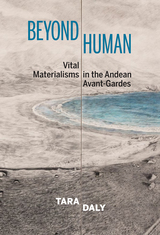
Published by Bucknell University Press. Distributed worldwide by Rutgers University Press.
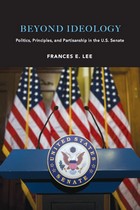
The congressional agenda, Frances Lee contends, includes many issues about which liberals and conservatives generally agree. Even over these matters, though, Democratic and Republican senators tend to fight with each other. What explains this discord? Beyond Ideology argues that many partisan battles are rooted in competition for power rather than disagreement over the rightful role of government.
The first book to systematically distinguish Senate disputes centering on ideological questions from the large proportion of them that do not, this volume foregrounds the role of power struggle in partisan conflict. Presidential leadership, for example, inherently polarizes legislators who can influence public opinion of the president and his party by how they handle his agenda. Senators also exploit good government measures and floor debate to embarrass opponents and burnish their own party’s image—even when the issues involved are broadly supported or low-stakes. Moreover, Lee contends, the congressional agenda itself amplifies conflict by increasingly focusing on issues that reliably differentiate the parties. With the new president pledging to stem the tide of partisan polarization, Beyond Ideology provides a timely taxonomy of exactly what stands in his way.
READERS
Browse our collection.
PUBLISHERS
See BiblioVault's publisher services.
STUDENT SERVICES
Files for college accessibility offices.
UChicago Accessibility Resources
home | accessibility | search | about | contact us
BiblioVault ® 2001 - 2024
The University of Chicago Press









